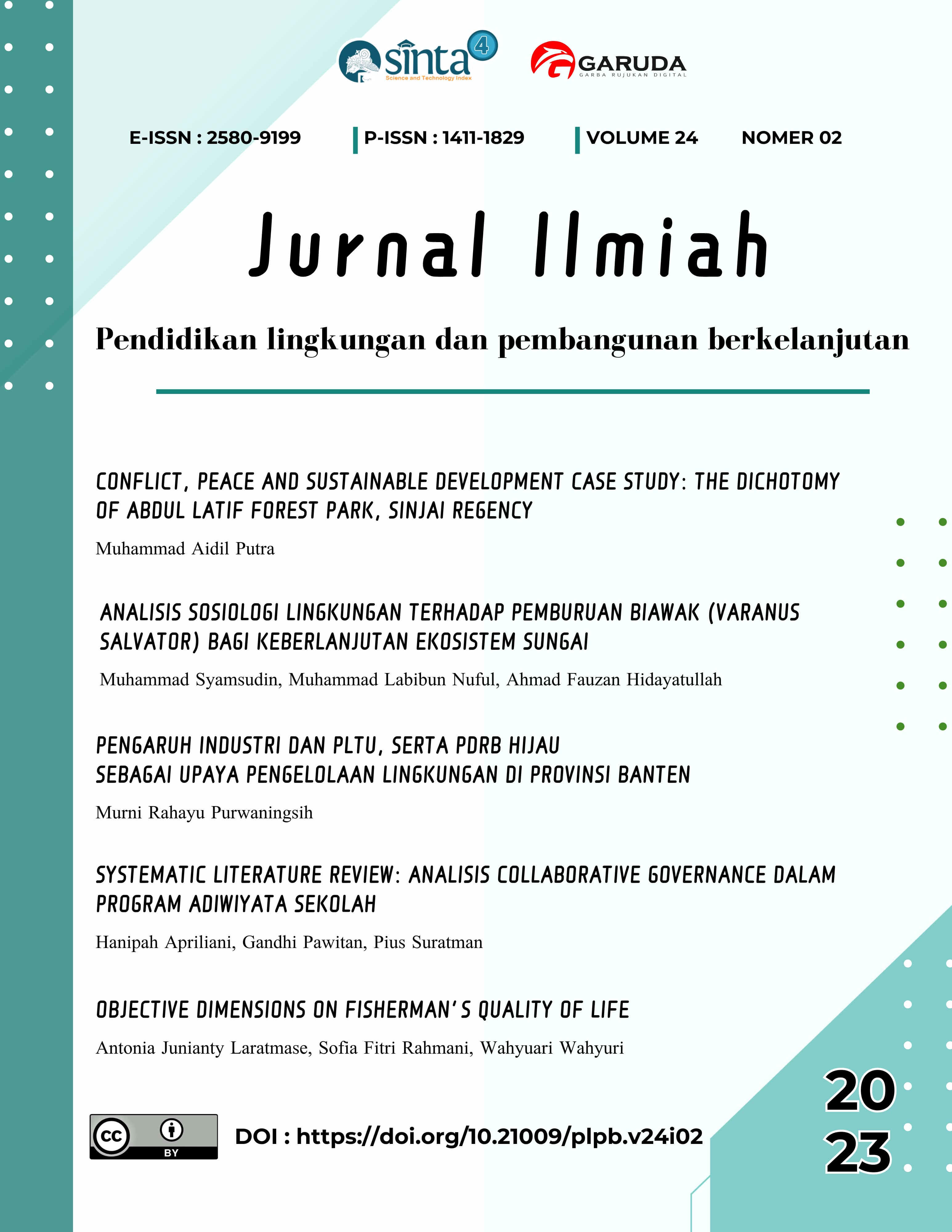Conflict, Peace, and Sustainable Development Case Study: The Dichotomy of Abdul Latif Forest Park, Sinjai Regency
DOI:
https://doi.org/10.21009/plpb.v24i02.37631Keywords:
Sustainable Development, Abdul Latif Grand Forest Park, Dichotomy, Local Indigenous People, Sinjai RegencyAbstract
As outlined in the 2015-2025 Long-Term Development Plan (RPJP) of Sinjai Regency, which is also regulated by the 2012 Regulation of the Minister of Environment and Forestry regarding Facilities and Infrastructure in Tahura Nature Tourism. Although the implementation of the Abdul Latif Grand Forest Park campsite construction was legally sound, the development faced opposition from local indigenous communities and environmental activists concerned that it would harm local values, as the forest is considered sacred. Ecologically, the development will alter the natural structure, leading to deforestation, an increased risk of landslides, and the obstruction of access to water for plantation and community agricultural purposes. This opposition is further reinforced by the area's status as a protected forest, as well as the presence of the endemic Anoa animal, which also factors into the decision to reject the development. This study employs a case study approach to achieve a thorough understanding of the examined events. The study's findings suggest that the conflict between the government and local indigenous communities stems from a mismatch between the current policy and the values that should be upheld, in addition to the lack of extensive communication among the local government, local indigenous communities and environmental activists.








